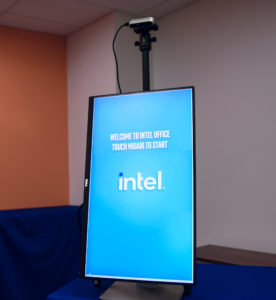Since Facebook acquired WhatsApp in 2014, users have wondered and worried about how much data would flow between the two platforms. Many of them experienced a rude awakening this week, as a new in-app notification raises awareness about a step WhatsApp actually took to share more with Facebook back in 2016.
On Monday, WhatsApp updated its terms of use and privacy policy, primarily to expand on its practices around how WhatsApp business users can store their communications. A pop-up has been notifying users that as of February 8, the app’s privacy policy will change and they must accept the terms to keep using the app. As part of that privacy policy refresh, WhatsApp also removed a passage about opting out of sharing certain data with Facebook: “If you are an existing user, you can choose not to have your WhatsApp account information shared with Facebook to improve your Facebook ads and products experiences.”
Some media outlets and confused WhatsApp users understandably assumed that this meant WhatsApp had finally crossed a line, requiring data-sharing with no alternative. But in fact the company says that the privacy policy deletion simply reflects how WhatsApp has shared data with Facebook since 2016 for the vast majority of its now 2 billion-plus users.
When WhatsApp launched a major update to its privacy policy in August 2016, it started sharing user information and metadata with Facebook. At that time, the messaging service offered its billion existing users 30 days to opt out of at least some of the sharing. If you chose to opt out at the time, WhatsApp will continue to honor that choice. The feature is long gone from the app settings, but you can check whether you’re opted out through the “Request account info” function in Settings.
Meanwhile, the billion-plus users WhatsApp has added since 2016, along with anyone who missed that opt-out window, have had their data shared with Facebook all this time. WhatsApp emphasized to WIRED that this week’s privacy policy changes do not actually impact WhatsApp’s existing practices or behavior around sharing data with Facebook.
[…]
None of this has at any point impacted WhatsApp’s marquee feature: end-to-end encryption. Messages, photos, and other content you send and receive on WhatsApp can only be viewed on your smartphone and the devices of the people you choose to message with. WhatsApp and Facebook itself can’t access your communications.
[…]
In practice, this means that WhatsApp shares a lot of intel with Facebook, including account information like your phone number, logs of how long and how often you use WhatsApp, information about how you interact with other users, device identifiers, and other device details like IP address, operating system, browser details, battery health information, app version, mobile network, language and time zone. Transaction and payment data, cookies, and location information are also all fair game to share with Facebook depending on the permissions you grant WhatsApp in the first place.
[…]


